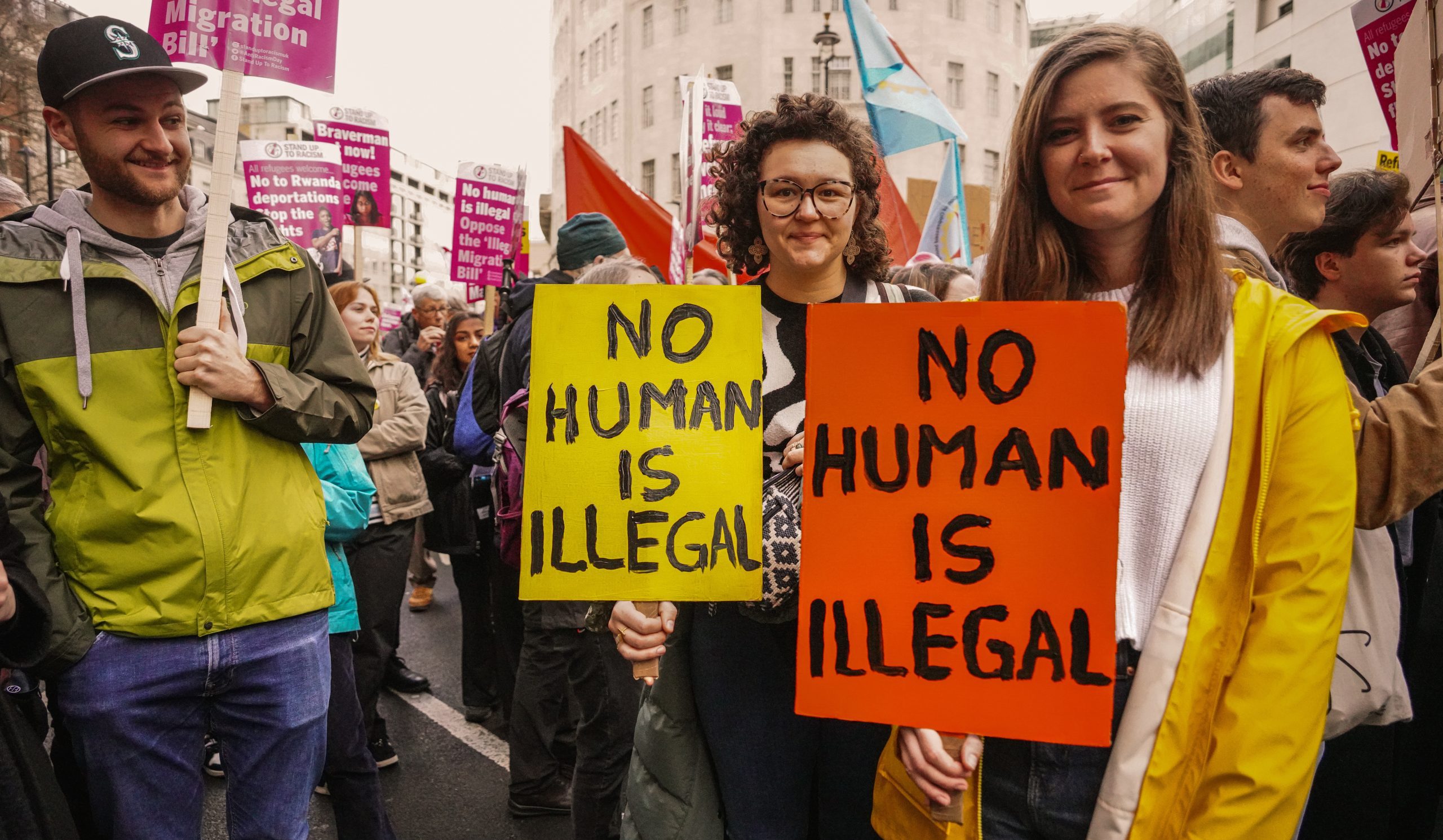
SRT grantee partners welcome the Supreme Court decision on the UK’s Rwanda scheme
On 15 November 2023, the UK Supreme Court ruled that the government’s Rwanda scheme is unlawful.
Under this proposed scheme, people who are deemed to have arrived in the UK unlawfully – including individuals fleeing persecution and war – would be transported to Rwanda to have their asylum claims processed there, with no return to the UK.
In its unanimous judgment, the Supreme Court found that there were substantial grounds to believe that people sent to Rwanda would be at real risk of refoulement – in other words, of being sent to another country where their life or freedom would be threatened. The Court ruled that the proposed plans breach domestic law and multiple international conventions to which the UK is a party, including the Refugee Convention, United Nations Convention Against Torture and the European Convention on Human Rights.
After the government had announced its Rwanda plan in April 2022, it was criticised by a wide range of people and organisations, including a former Conservative Prime Minister, the Head of the Church of England, the United Nations, Human Rights Watch and numerous community organisations. UK civil society rapidly mobilised in response to the announcement, and many of the Trust’s grantee partners campaigned against the scheme or were involved in the legal proceedings to challenge it.
Freedom from Torture were active even before this specific scheme was proposed. In 2021, they commissioned a legal opinion from Raza Husain KC, which sets out the underlying problems with the UK’s determination to circumvent its obligations under the Refugee Convention. The organisation also provided witness evidence and expertise throughout the legal proceedings, including an intervention on procedural fairness at the Court of Appeal. Outside the legal proceedings, Freedom from Torture also successfully campaigned for a range of prospective airlines to pull out of the scheme. Sonya Sceats, the group’s Chief Executive, noted that the policy “does too little to identify and protect survivors and other vulnerable groups and would see them placed at risk of further harm … [the government] should focus on rebuilding a fair and compassionate asylum system, one that welcomes and offers a fair hearing to refugees no matter how they arrive.”
Medical Justice published a comprehensive report in September 2022, detailing the medical evidence of the harm inflicted on 36 clients targeted for removal who had been detained. The group’s doctors described “the severe impact of the threat of removal to Rwanda on mental health: experiences of intense fear, anxiety about the future, profound loss of hope, and traumatic reminders of past experiences of powerlessness, [which] deprive people of the sense of safety required for careful assessment and recovery. These experiences would be harmful in general, but are made even more acute by their being experienced within immigration detention and by a population with a high rate of vulnerability.”
Asylos were cited by the Supreme Court in its judgment. In 2022, the organisation had published a commentary on the inconsistencies between the Country of Origin Information on the Rwanda asylum system and the Home Office’s assessment, identifying several areas of concern. Asylos’ complementary research report included information about the Rwandan asylum system that had not been cited in the Home Office’s research. One serious issue was the failure to consider refoulement that had occurred under a similar agreement between Israel and Rwanda. Sophie Kloos, Asylos’ Director, affirmed: “The Supreme Court judgment highlights the importance of Country of Origin Information research not only for fair and evidence-based asylum decisions in individual cases, but also for ensuring that asylum policies are grounded in thorough research.”
A joint civil society statement published after the court handed down its judgment, and signed by many of the Trust’s grantee partners (including René Cassin, Public Law Project and Refugee Action), expressed relief “that the Supreme Court has made the right decision and declared that Rwanda is not a safe country for this government to send people needing safety. The Rwanda plan was always cruel and immoral.” They continued to “urge the Government to immediately abandon such plans with Rwanda or with any other country, and instead protect the rights of people who have come to our country in search of sanctuary.”
Return to grantee stories
